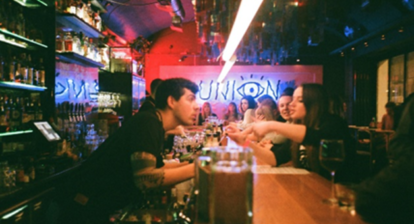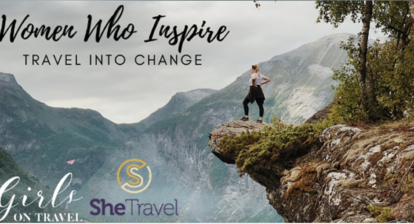During this interview we sit down to talk with our own Lauren Porter head of operations at NGS to talk about her recent travels across the caucuses. Lauren has a wealth of experience traveling in Eastern Europe and the supposed less trodden path. However, in this interview we run through a series of female travel questions but also take a more region-specific approach to her time spent in Georgia, Armenia, and Azerbaijan.
What preparations did you make travelling to countries with a potentially more conservative culture?
I looked up the country profiles on SheTravel beforehand. I saw that Azerbaijan, for instance, is a Muslim country, and I assumed that I would have to wear more conservative clothing, covering my shoulders, covering my knees and so on. However, the more research I did, the more I found that it was not as restrictive as other Muslim countries. I packed clothes which I would typically wear to the office in the UK so that I was less likely to offend anyone. I also packed a small scarf which could act as a head scarf as all of the three countries I was visiting has places of worship in which women were required to cover their heads.
Georgia, Armenia and Azerbaijan are three unique countries. Were there any noticeable differences between attitudes to women or were they relatively similar?
Not definitively. I was expecting Azerbaijan to be a much more conservative culture. I didn’t feel that very much. When I was in Azerbaijan I was in Baku, which is a very liberal and wealthy centre for regional travel in general. I found the greatest difference was in Armenia in terms of how they treat female tourists, but it was still very subtle. In Georgia, there are fewer female tourists, but I was expecting less of a gender divide when I was there in terms of people working in more gender roles.
Did it any point you feel discriminated against or treated differently because you’re a woman and did this change your travel plans?
In all three of the countries, there was still quite clear gender divides, especially in terms of the employment sectors. Women would be selling food that they had they had made on market corners, whereas men tended to be taxi drivers. They would go out and make a living more, as construction workers and oil workers.
For my trip, I used trains and buses, and they were evenly split as to the number of men and women on them, so I didn’t ever feel unsafe on public transport.
In Georgia, I stayed with a local family and saw how their household was run. The mother ran the home and cooked all the meals and the father was out all day driving taxis. It was a really rural area that was cut off from the rest of the world for six months of the year due to snow. The children both spoke perfect English. Their older siblings went to university – including the girls, who after university were planning on working in the capital, Tbilisi.
In Armenia, I received more stares for the clothes I was wearing than in Georgia. I was still wearing relatively conservative clothes. I wore high neck long sleeve dresses that were just slightly above the knee. But even then, I was looked at in terms of what I was wearing. More in the rural streets than in the touristy areas.
Interestingly, when I went to rural Azerbaijan, there were practically no women working there.
Did you notice any difference between how you and your male counterparts were treated on your travels?
Yes, I was definitely treated differently as a woman. When locals would talk to us, I noticed that they would address my partner rather than me. When we were checking into hotels, or paying for dinner, the dinner bill would always come to my partner.
Do you have any advice for female travellers heading to the caucuses anytime soon?
You’ll have a brilliant time they are three beautiful countries. My advice would be if you ever feel slightly unsafe, or in an area dominated by men, then head to a café where there’s likely to be women. There are a lot of unlicensed taxis in the Caucasus which will offer you cheaper taxi rates, but don’t be tempted to get into one – it’s not a safe thing to do. I found that public transport links in the Caucasus were great and I would encourage people to use them. They have shared buses that are a very cheap way of travelling, but I also found them to be safe. There are so many old churches that are worth visiting – take a small headscarf because if you’re going into any religious buildings it’s respectful.
Are there any general female travel safety tips that you picked up on your trip?
If my partner was going off for a walk or something and I was going elsewhere, I would wear a wedding ring when going to hotels or cafes even though I’m not married. I probably wouldn’t take any taxis by myself unless I knew they were licenced.
Were your preconceptions about female safety challenged during your travels?
Yes. I think I was expecting it to be a lot more difficult than it was. The Caucuses are not a particularly well-travelled region for many Europeans. I was pleasantly surprised in fact by how easy it was for me to travel around. Even if I wasn’t with my male partner, I think I would have found it relatively easy.








